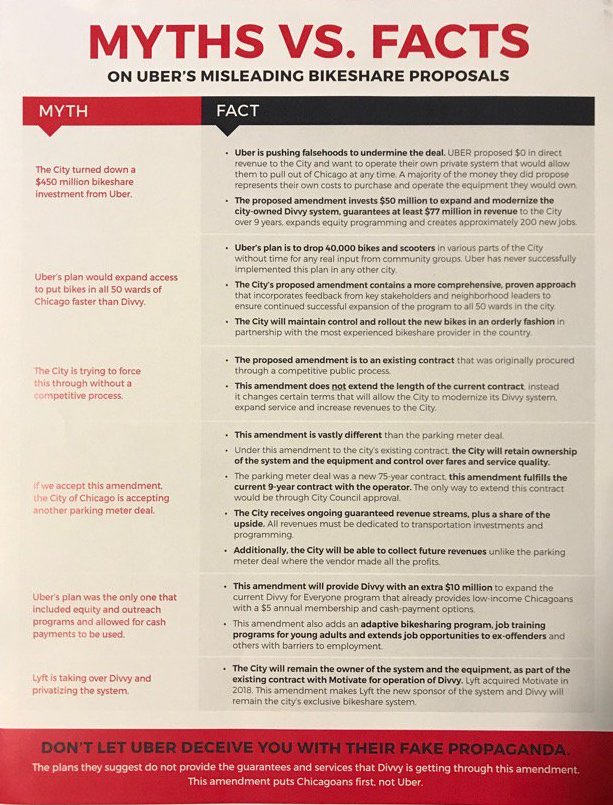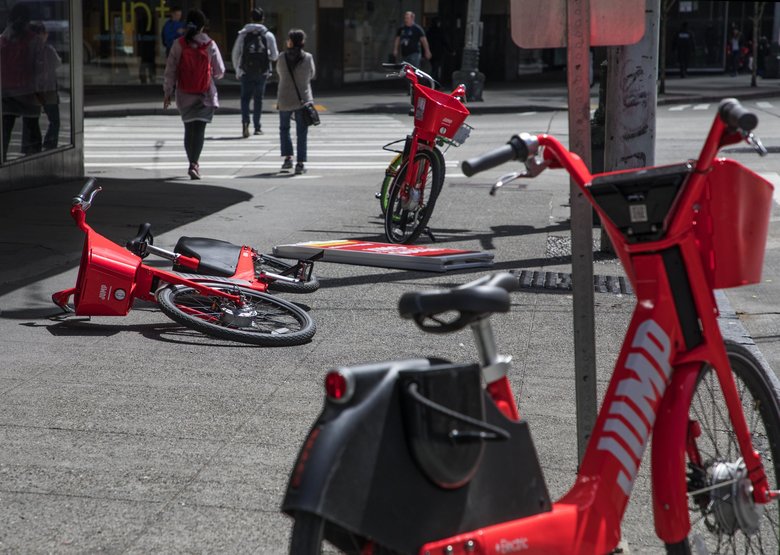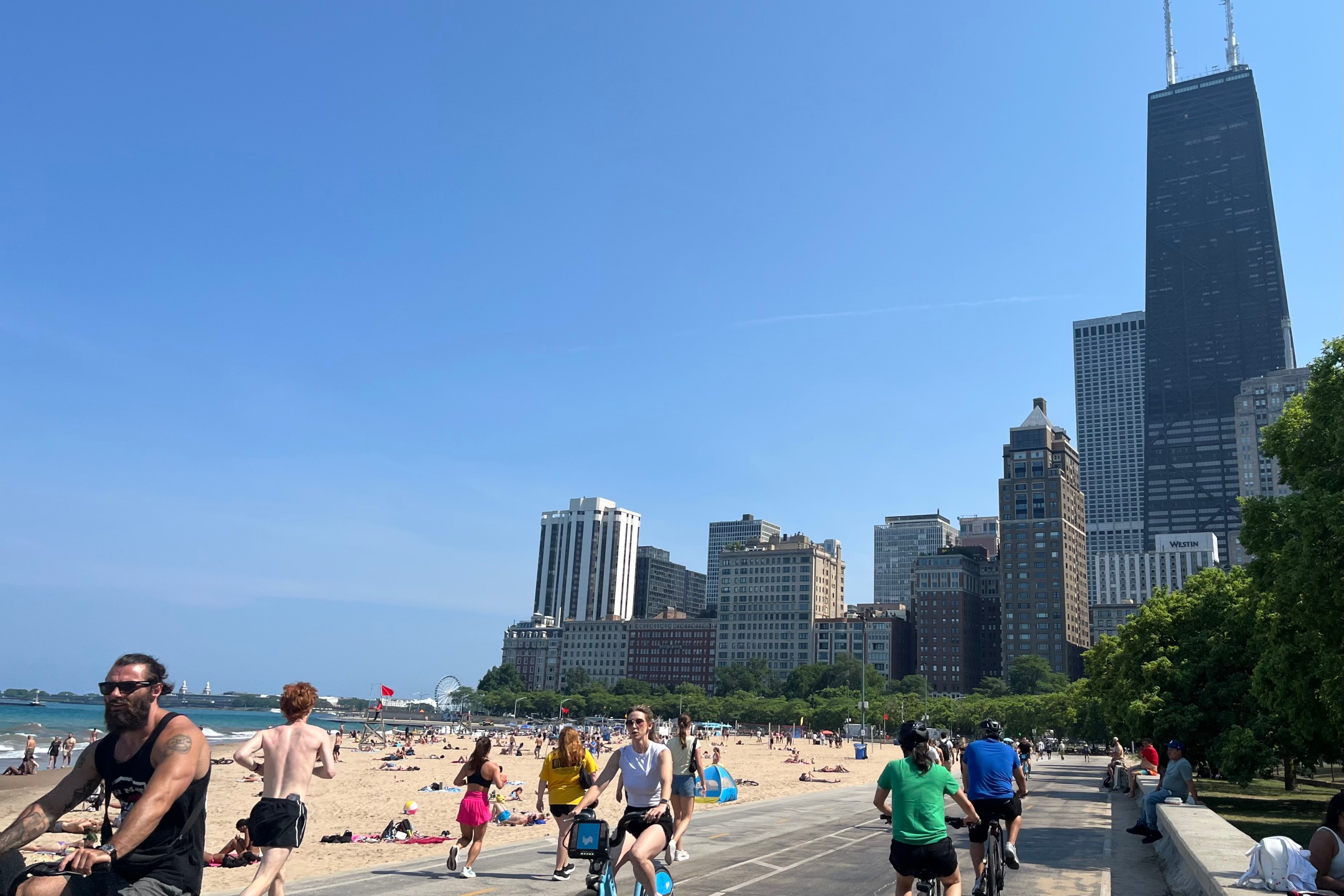Uber's third-quarter operating loss this year is estimated to be $4.96 billion, which Streetsblog reader Matt Michel pointed out on Twitter is more than enough money to build the entire South Red Line extension. But it looks like the company is still looking for new ways through burn through its investors' cash.
As reported by Block Club Chicago's Heather Cherone, Uber is spending money on lawyers' fees with a new lawsuit filed Friday, griping that the Divvy/Lyft expansion deal, approved by the City Council last April, is a “backroom monopoly” that unfairly “locks out” other bike-share companies. The nine-year extension of the city's existing contract with Lyft, Uber's arch-enemy, gives Lyft the exclusive rights to operate bike-share in our city.
“By locking out other competitors, former Mayor Emanuel’s backroom monopoly fails to bring bikes to all Chicago neighborhoods — particularly the south and west sides — where they are needed most,” Uber spokesperson Kelley Quinn told Block Club.
Check out the full lawsuit in all its whiny glory here.
Under the largely anti-sustainable transportation Trump administration, federal grants for bike facilities, which funded earlier phases of Divvy, have been difficult to come by. Therefore Chicago's deal with Lyft provided an opportunity to finally expand the system citywide at no cost to the city, while modernizing the fleet with electrical-assist, dockless-option bikes. Lyft is providing $50 million worth of hardware, including 10,500 bikes and 175 stations, at no cost to the city, and Chicago even gets to keep the equipment after the nine-year contract extension expires.
On top of that, the contract extension guarantees Chicago an additional $77 million in revenue over the next nine years and provides another $10 million for the Divvy for Everyone $5 membership program for low-income Chicagoans. Lyft is required to expand the system citywide by 2021.
In contrast, Uber's counterproposal was essentially vaporware, promising a wealth of benefits for Chicago that the company almost certainly couldn't have delivered in order to claim they were offering a better, more equitable deal. At the time, they implied that the city was missing an opportunity to get $450 million in investments from Uber with no exclusivity. In truth Uber would have spent only $200 million unless it was given a monopoly.
And Uber argued that the Lyft deal was unfair to the South and West Sides because Uber would have provided bike sooner, deploying 20,000 cycles by this summer. Since Uber only had a few thousand bikes spread across the entire country at the time, that was an absurd timeline. Here's a fact sheet released by the Chicago Department of Transportation last spring debunking Uber's claims.

Moreover, Uber spent thousands, if not tens of thousands of dollars, at the time to promote their false narrative via the following PR and astroturfing strategies:
- JUMP's misinformation-filled PumpTheBrakesChicago.com website attacking the Lyft/Divvy deal
- Thousands of dollars spent on Facebook ads within a few weeks
- Purchasing flattering "news" coverage on The TRiiBE, a local news and culture website, implying that the Lyft/Divvy deal would be inequitable
- Buying a full page ad (read it here) in the Chicago Sun-Times with endorsements from 43 South Side faith leaders, including civil rights leader Reverend Jesse Jackson Sr.
Uber's lawsuit claims that the expansion deal should have gone through a competitive bid process. But rather than being a "no-bid, exclusive contract," as the lawsuit claims, Lyft's existing contract with the city was the product of a bid process that happened prior to the initial 2013 Divvy launch. (Lyft purchased Motivate, the Divvy concessionaire, in summer 2018.)
Uber's lawsuit against the Divvy expansion deal is a fairly obvious case of sour grapes that seems unlikely to be much of a speed bump for the Divvy expansion, but it will be a waste of time and money for everyone involved.
Meanwhile, Lyft is moving forward with rolling out the new e-Divvies, with a series of community bike rides at which residents can test-ride the bikes and provide input on where the stations should go. View the full schedule of events here.



